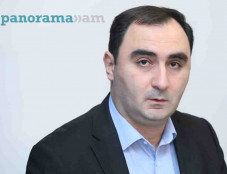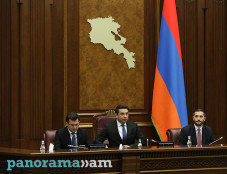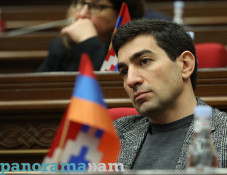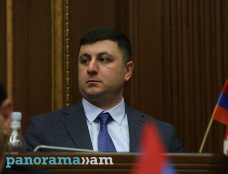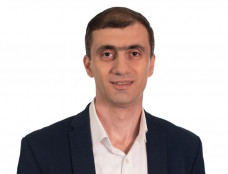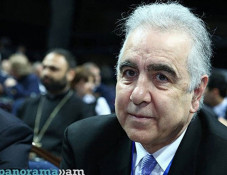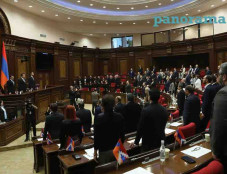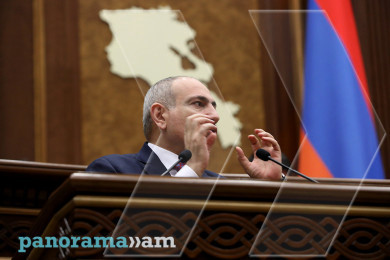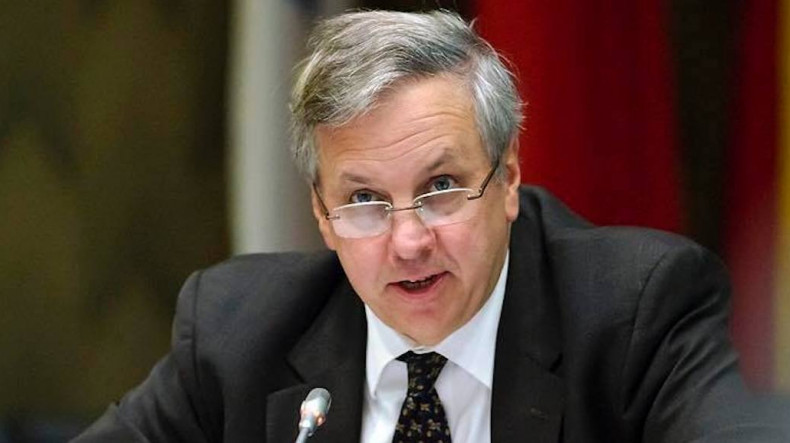
Analysis: Russia took advantage while the West slept
Diplomat Ian Kelly, former U.S. ambassador to Georgia, ambassador to the Organization for Security and Cooperation in Europe, State Department spokesperson, and director of the Office of Russian Affairs in Washington, D.C., weighed in on the Artsakh war and its impacts in an article published on The Atlantic on November 4.
He recalls that month marks the first anniversary of the ceasefire in the war between Armenia and Azerbaijan, the second between the two countries over the “disputed region” of Nagorno-Karabakh, in the southern Caucasus.
The first war ended in 1994, also with a ceasefire. Then the two sides agreed that the United States, France, and Russia would co-chair a negotiating process for a lasting solution.
"In 2012, I was asked to be the U.S. representative in that process. Although the job’s official mandate laid out basic principles for any solution—among others, that any peacekeeping force would be multilateral—I found that there were some unwritten understandings as well. One of those was that Moscow and Washington had agreed that the peacekeeping force would not include the two superpowers. The warring sides also agreed to this. I discovered this before one of my first negotiating meetings, when a senior Azerbaijani official took me aside and told me that allowing Russian troops in Nagorno-Karabakh would be a “redline” for them too, because, as he put it, “once Russian peacekeepers arrive, they never leave.” (No doubt Georgia and Moldova, where Russian peacekeepers have become occupiers, would agree.)
"And yet, last year’s cease-fire was mediated only by Russia, and the resulting peacekeeping force includes only Russian troops," Kelly writes.
"How did this complete marginalization of Washington and Paris come about? One reason is the Kremlin’s abiding desire to reassert Russian hegemony over what it sees as its historic lands, and to minimize Western involvement in the region.
But there is another reason: the reluctance of the White House and the Élysée to be engaged in the mediation process. Prior to the eruption of the most recent conflict, diplomats from the U.S. and France had tried for years to involve their own leaders in getting the presidents of the two conflicting sides to make peace, yet successive American and French administrations have declined to do so. Both President Barack Obama and President Donald Trump were unwilling to commit to the kind of back-and-forth and head-knocking cajoling needed to reach agreement. They each apparently believed that the American president should participate only in a final signing ceremony.
The third of the three original co-chairs, however, was willing to jump into the negotiations. Over the past decade, Putin has hosted the presidents of Azerbaijan and Armenia virtually every year.
So when war broke out in 2020, Putin alone was willing to throw his weight behind getting the fighting to stop. (Turkey notably also provided game-changing high-tech weapons to Azerbaijan during the war, and now has officers in an observation post.) Paris and Washington, having essentially subcontracted the resolution of the conflict to Moscow, could express only relief at the end of the fighting and the resulting Russian peacekeeping force, even as Putin had elbowed them out of the process.
Russia is now in the driver’s seat as never before. It has troops on the ground in all three Caucasus countries—two with the consent of the host (Armenia and Azerbaijan), and one without (Georgia). Moscow is also pushing a new multilateral mechanism for the region, called the “3+3,” which would include the Caucasus states plus three illiberal (and former imperial) powers, Russia, Turkey, and Iran.
Azerbaijan is willing to participate in this new mechanism, designed primarily to establish new north-south trade routes through the region. Georgia, with 20 percent of its land under Russian occupation, and Armenia, with its border disputes with Azerbaijan, have not said they would take part, although both have expressed an openness to consider new economic initiatives for the region. Trade has long been blocked in the region by embargoes because of the conflicts in Nagorno-Karabakh and Georgia," reads the article.
Newsfeed
Videos





